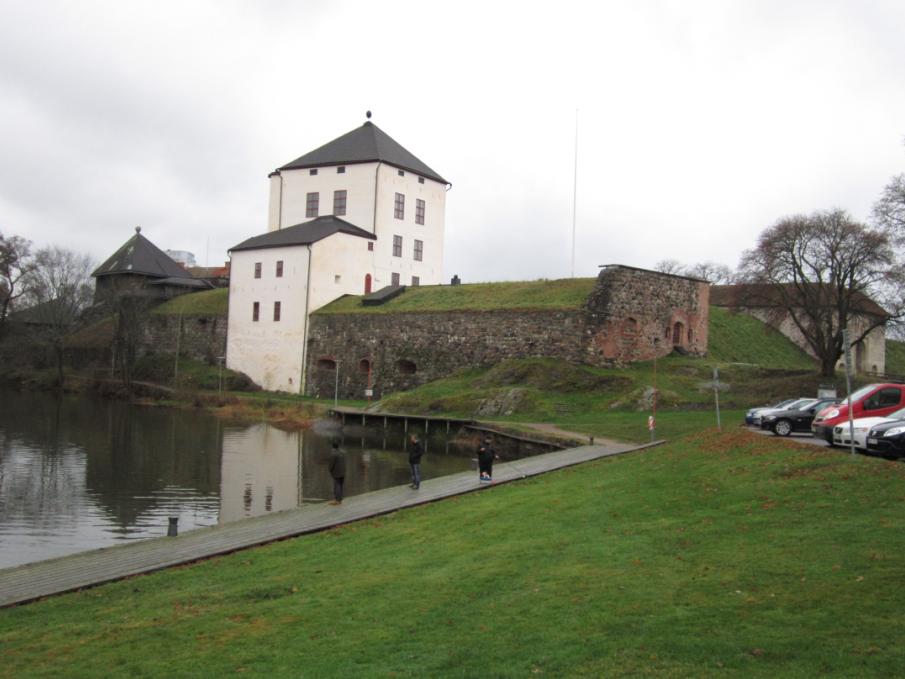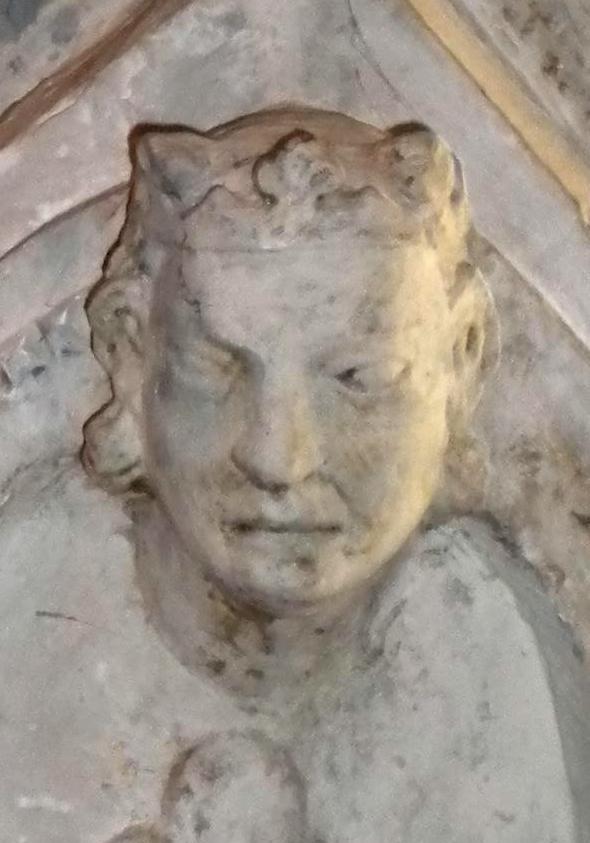Nyköping Banquet on:
[Wikipedia]
[Google]
[Amazon]
 The Nyköping Banquet ( sv, Nyköpings gästabud) was King Birger of Sweden's
The Nyköping Banquet ( sv, Nyköpings gästabud) was King Birger of Sweden's



Shack och makt – Sörmlands museum (in Swedish)
{{DEFAULTSORT:Nykoping Banquet 1317 in Europe Political history of Sweden Conflicts in 1317 14th century in Sweden
 The Nyköping Banquet ( sv, Nyköpings gästabud) was King Birger of Sweden's
The Nyköping Banquet ( sv, Nyköpings gästabud) was King Birger of Sweden's Christmas
Christmas is an annual festival commemorating the birth of Jesus Christ, observed primarily on December 25 as a religious and cultural celebration among billions of people around the world. A feast central to the Christian liturgical year ...
celebration 11December 1317 at Nyköping Castle in Sweden
Sweden, formally the Kingdom of Sweden,The United Nations Group of Experts on Geographical Names states that the country's formal name is the Kingdom of SwedenUNGEGN World Geographical Names, Sweden./ref> is a Nordic countries, Nordic c ...
. Among the guests were his two brothers Duke Valdemar and Duke Eric, who later that night were imprisoned and subsequently starved to death in the dungeon
A dungeon is a room or cell in which prisoners are held, especially underground. Dungeons are generally associated with medieval castles, though their association with torture probably belongs more to the Renaissance period. An oubliette (from ...
of Nyköping Castle.
Prelude
The dukes Valdemar and Eric, brothers of King Birger, had earlier staged a coup against the king ( Håtuna games). After the intervention of the Danish and Norwegian kings, a settlement was reached in 1310 and Sweden was divided among the brothers into three sovereign states.


Treacherous arrests
Seven years later, the dukes Valdemar and Eric were invited as a sign of reconciliation to celebrate Christmas with King Birger and Queen Märta at Nyköping Castle. The banquet was held on the night between 10 and 11December 1317. The dukes'retinue
A retinue is a body of persons "retained" in the service of a noble, royal personage, or dignitary; a ''suite'' (French "what follows") of retainers.
Etymology
The word, recorded in English since circa 1375, stems from Old French ''retenue'', ...
s were lodged not in the castle, but in the town of Nyköping, the pretext being lack of space. After both dukes had retired to bed, the king's drost Drost is a Dutch occupational surname. A ''drost'' or '' drossaard '' was a kind of bailiff in the Low countries (see landdrost and seneschal). Notable people with the surname include:
* Epi Drost (1945–1995), Dutch footballer
* Erik Drost (b ...
Brunke ( Johan von Brunkow) arrived with a company of crossbow
A crossbow is a ranged weapon using an Elasticity (physics), elastic launching device consisting of a Bow and arrow, bow-like assembly called a ''prod'', mounted horizontally on a main frame called a ''tiller'', which is hand-held in a similar ...
men and manacle
Handcuffs are restraint devices designed to secure an individual's wrists in proximity to each other. They comprise two parts, linked together by a chain, a hinge, or rigid bar. Each cuff has a rotating arm which engages with a ratchet that ...
d them. The following morning, the dukes' retinues were also apprehended.
According to the Eric Chronicles, King Birger himself was present, reminding the dukes of the Håtuna Games: paragraph 220
:''Mynnes jder nakot aff hatwna leek? Fulgörla mynnes han mik''
:(''Remember ye aught of the Håtuna Games? I remember them clearly'')
Imprisonment
The dukes were imprisoned in the castle'sdungeon
A dungeon is a room or cell in which prisoners are held, especially underground. Dungeons are generally associated with medieval castles, though their association with torture probably belongs more to the Renaissance period. An oubliette (from ...
. They knew that no mercy would be forthcoming from Birger so they had their wills drawn up after five weeks. These documents, dated 18January 1318, survive today. Soon thereafter, both dukes died in the dungeon, according to tradition by drawn-out starvation
Starvation is a severe deficiency in caloric energy intake, below the level needed to maintain an organism's life. It is the most extreme form of malnutrition. In humans, prolonged starvation can cause permanent organ damage and eventually, de ...
. According to legend, King Birger threw the keys to the dungeon into the Nyköping river. A large medieval key was indeed found during the 19th century near the castle.
King Birger, however, had misjudged the political situation in the country. A rebellion broke out in 1318 against his rule, and he was forced to flee to Gotland
Gotland (, ; ''Gutland'' in Gutnish), also historically spelled Gottland or Gothland (), is Sweden's largest island. It is also a province, county, municipality, and diocese. The province includes the islands of Fårö and Gotska Sandön to ...
, whence he soon had to continue his flight to Denmark
)
, song = ( en, "King Christian stood by the lofty mast")
, song_type = National and royal anthem
, image_map = EU-Denmark.svg
, map_caption =
, subdivision_type = Sovereign state
, subdivision_name = Kingdom of Denmark
, establish ...
.
Aftermath
The three-year-old son of Duke Eric,Magnus
Magnus, meaning "Great" in Latin, was used as cognomen of Gnaeus Pompeius Magnus in the first century BC. The best-known use of the name during the Roman Empire is for the fourth-century Western Roman Emperor Magnus Maximus. The name gained wid ...
, was elected King in 1319 by the Stone of Mora
The Stones of Mora () is a historic location in Knivsta, Sweden. Several Medieval kings of Sweden were proclaimed at
the assembly of Mora near modern Uppsala. It was moved in the 15th century and was considered to have been lost. However, ther ...
in Uppland
Uppland () is a historical province or ' on the eastern coast of Sweden, just north of Stockholm, the capital. It borders Södermanland, Västmanland and Gästrikland. It is also bounded by lake Mälaren and the Baltic Sea. On the small uninhab ...
. King Birger's son Magnus
Magnus, meaning "Great" in Latin, was used as cognomen of Gnaeus Pompeius Magnus in the first century BC. The best-known use of the name during the Roman Empire is for the fourth-century Western Roman Emperor Magnus Maximus. The name gained wid ...
resisted forces that tried to take the Castle of Nyköping, but Magnus was defeated and fled with the drost Brunke. They lost a sea action and were captured and executed in 1320. The drost Brunke was executed in Stockholm
Stockholm () is the capital and largest city of Sweden as well as the largest urban area in Scandinavia. Approximately 980,000 people live in the municipality, with 1.6 million in the urban area, and 2.4 million in the metropo ...
on the sandy ridge that has since been known as Brunkeberg. The deposed king Birger died in 1321 in exile
Exile is primarily penal expulsion from one's native country, and secondarily expatriation or prolonged absence from one's homeland under either the compulsion of circumstance or the rigors of some high purpose. Usually persons and peoples suf ...
in Denmark.
Thus, of the royal family, there remained only the old queen mother Helvig of Holstein
Hedwig of HolsteinPhilip Line, ''Kingship and state formation in Sweden, 1130-1290'', BRILL, 2007, 9004155783, p. 390. or Helvig( sv, Helvig, german: Helwig) (1260–1324) was Queen of Sweden as the consort of King Magnus III Barnlock. Her parent ...
, (spouse of Magnus Ladulås
Magnus III ( 1240 – 18 December 1290), also called Magnus Ladulås, was King of Sweden from 1275 until his death in 1290.
Name
He was the ''first Magnus'' to rule Sweden for any length of time, not generally regarded as a usurper or ...
), the exiled Queen Märta, and the young king Magnus Eriksson, son of the dead Duke Eric.
See also
*Black Dinner
Clan Douglas is an ancient clan or noble house from the Scottish Lowlands.
Taking their name from Douglas in Lanarkshire, their leaders gained vast territories throughout the Borders, Angus, Lothian, Moray, and also in France and Sweden. The f ...
References
External links
Shack och makt – Sörmlands museum (in Swedish)
{{DEFAULTSORT:Nykoping Banquet 1317 in Europe Political history of Sweden Conflicts in 1317 14th century in Sweden